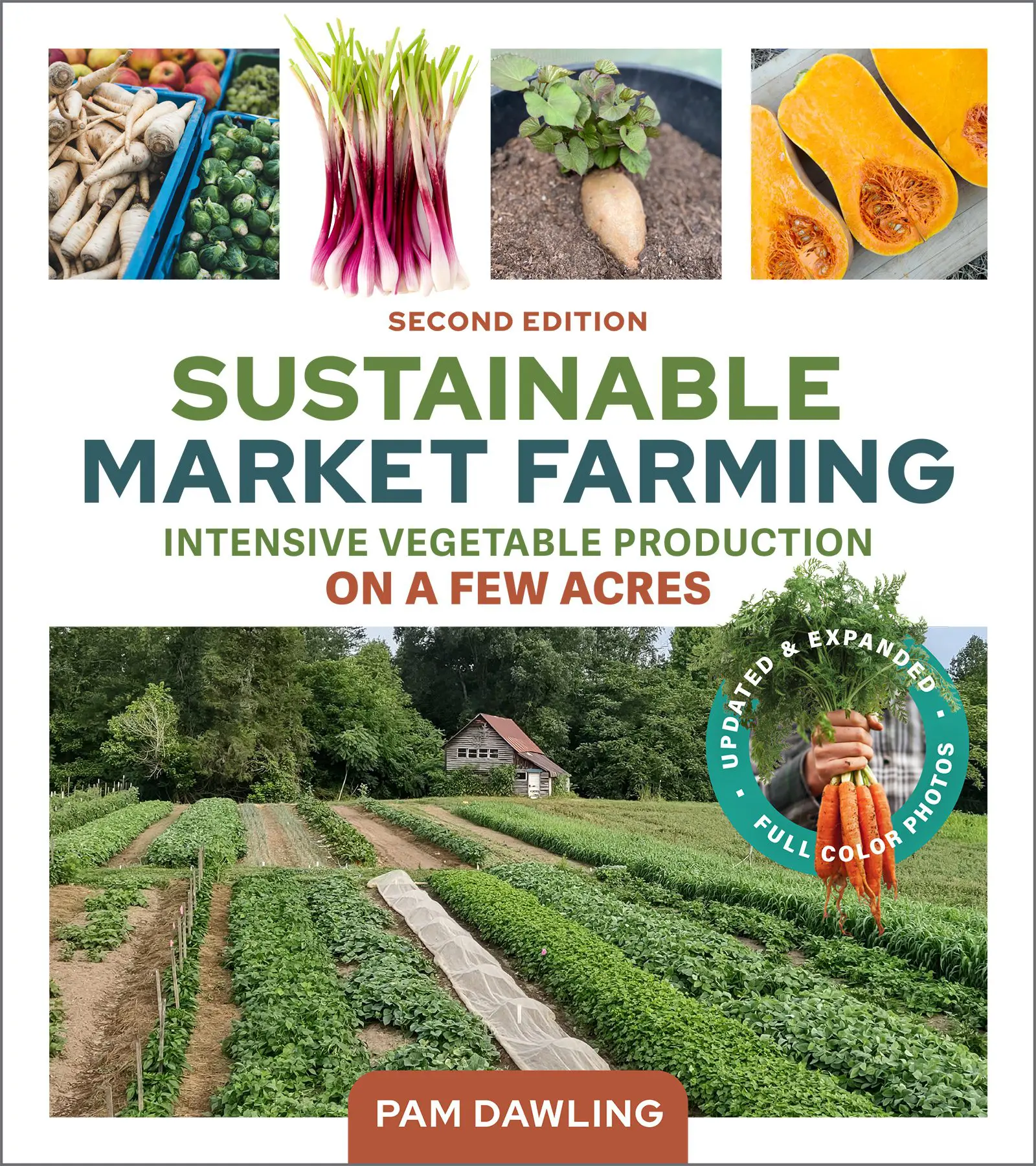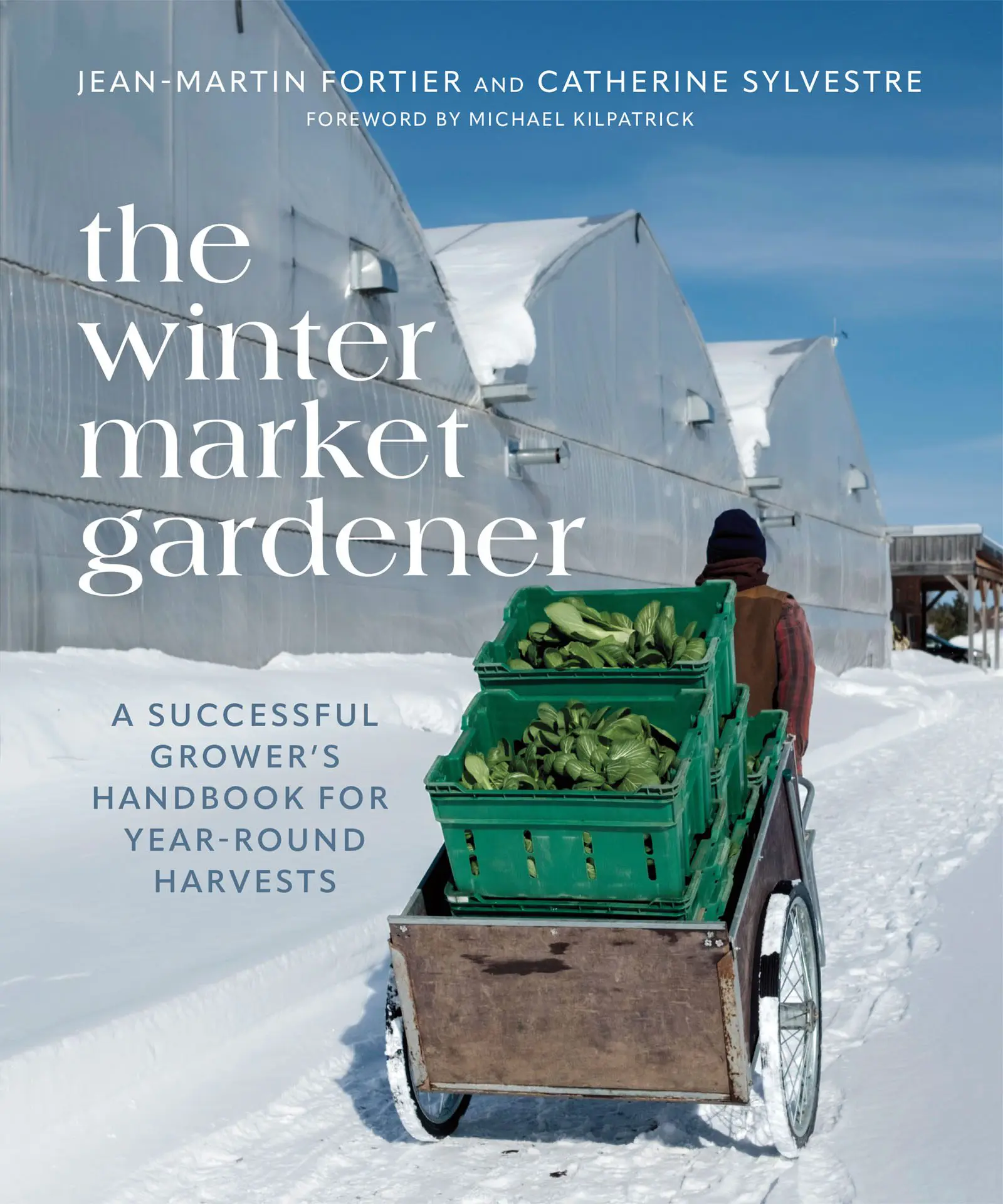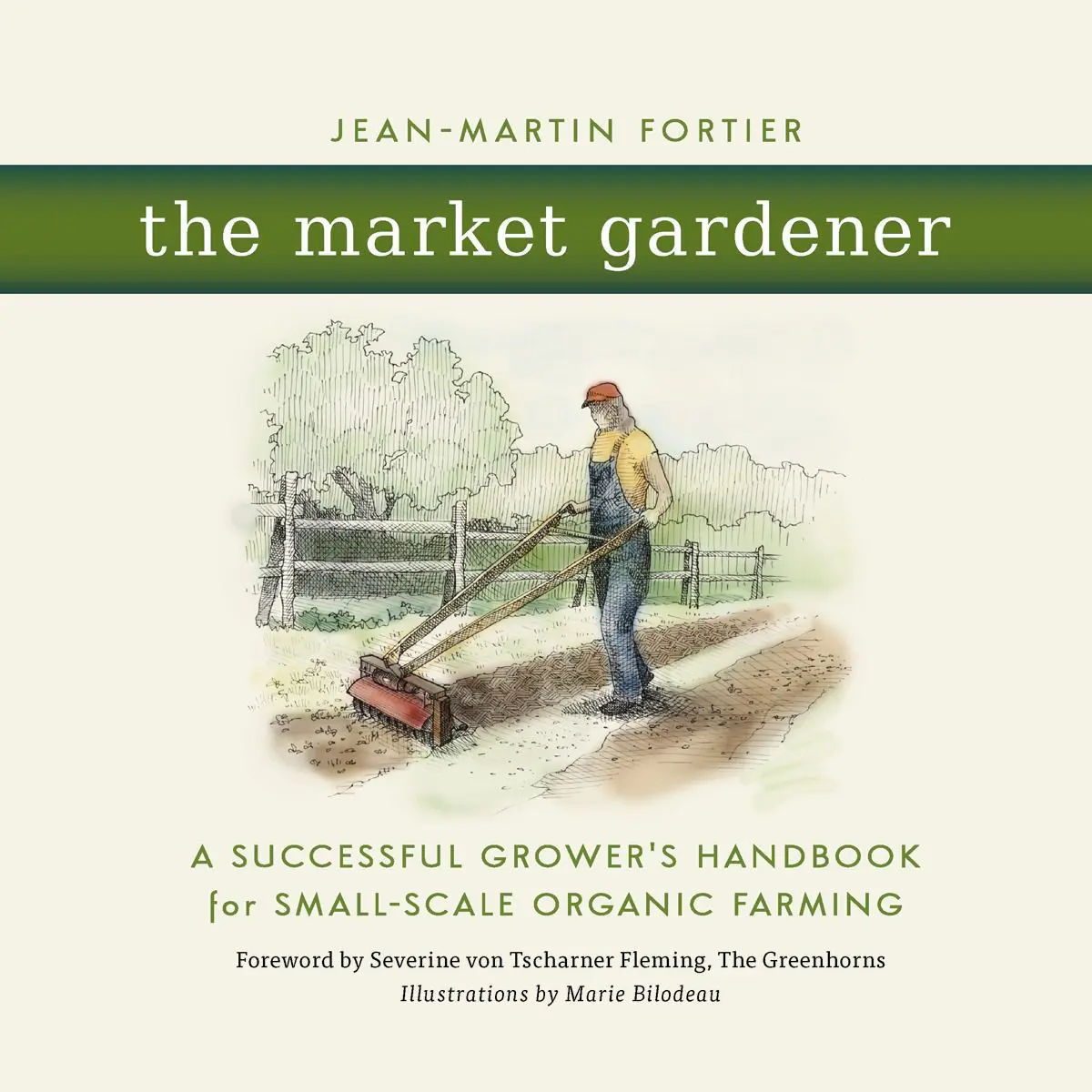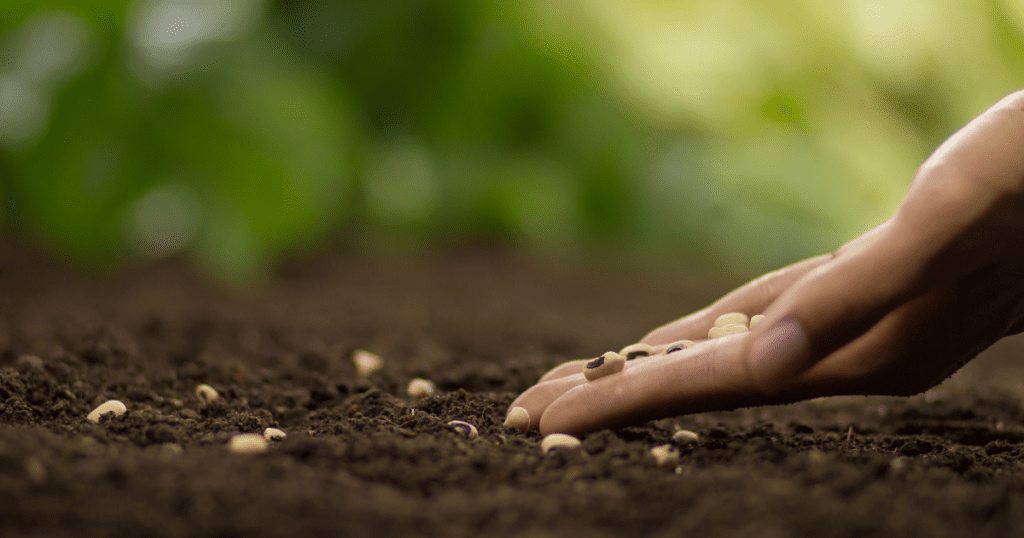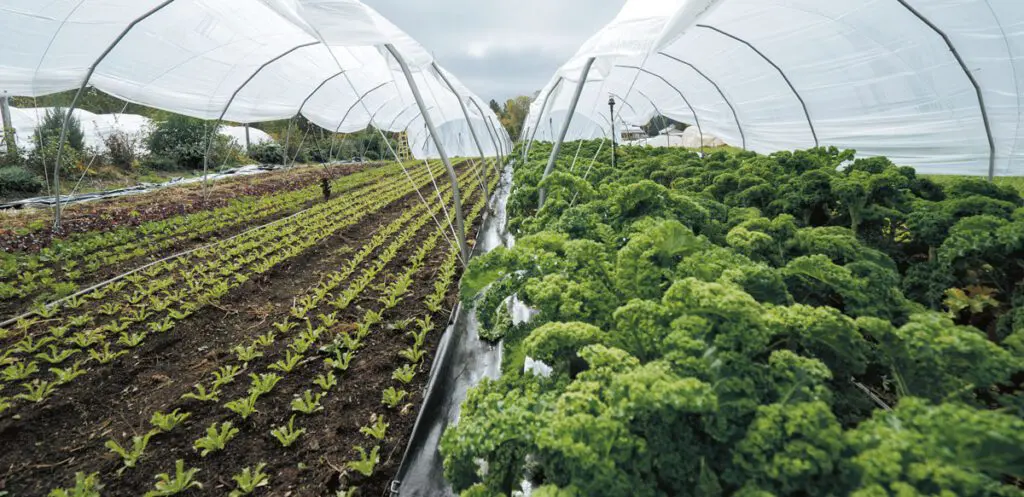
Being a farmer requires more than just working the field. Managing a farm workforce effectively is key to running a successful small-scale farm. In this excerpt from Microfarms, a must-read guide to profitable, eco-friendly small-scale farming, JM Fortier and Aurélie Sécheret offer five essential lessons that will help you streamline team coordination, boost productivity, and create a positive working environment on your farm. Whether you’re a seasoned grower or just starting out, these practical insights are designed to make workforce management a breeze!
Advice from JM Fortier: Five essential lessons to better manage your workforce
1. Clearly state what you expect from your team
When working on your farm, whether it’s with a team of 5 or 2 people, make sure you have a clear plan of action. Set goals for the day every morning. If you need to perform more than three tasks on a single crop, avoid doing all at the same time. Ask your team to complete the first two steps, then give them instructions for the next two steps once they are done, and so on. Let’s take tomato trellising as an example.
Over the course of one day, you may have to harvest, top the plants, remove suckers, lean and lower the plants, and prune them. If you ask your team to do all these steps at once, it’s very likely that some tasks will be done poorly or forgotten altogether. It’s also important to set a time estimate for each task. In the first weeks of the season, make sure to slow down and watch (repeatedly) how your employees work, to make sure they are using the right techniques, have good posture, etc.
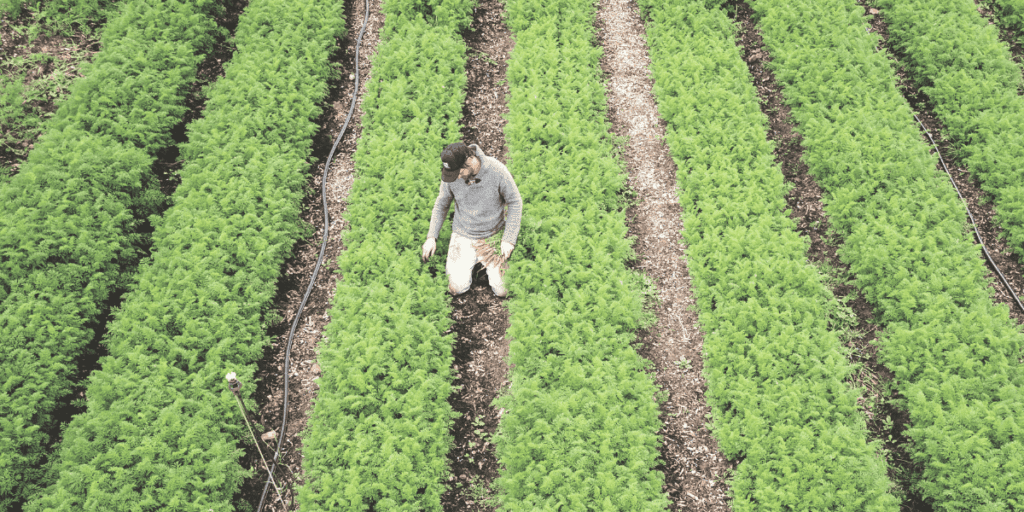
2. Be rigorous
When working on the farm, you might be tempted to delay tackling long and tedious chores. Don’t fall into this trap because you will regret it. For example, by hoeing a bed early on, you can avoid hand weeding it later, which is quite tedious.
3. Focus on positive reinforcement
The quality of your team’s work in every task will affect the overall efficiency of your operation. You should never tolerate work that is done poorly because, in time, it may negatively impact production on the microfarm. A significant part of your job as a market gardener is to give instructions, and then make sure they are well understood. Once that’s done, it’s better to highlight good work than to complain about bad performance.
For instance, when harvesting carrots, you may ask employees to sort them into three different bunch sizes, with carrots that are roughly the same size in each bunch. Positive reinforcement here would consist of four steps.
- Congratulate them – “Great job!”
- Explain what they did well, thus reinforcing your instructions – “Your bunches are consistent and sorted to the right size.”
- Once again, show your appreciation for a job well done and repeat why it is important – “I’m so glad you’re sticking to the instructions. Thank you! Our customers appreciate the time we spend sorting for size, especially the chefs.”
- Encourage them – “Keep up the good work!”
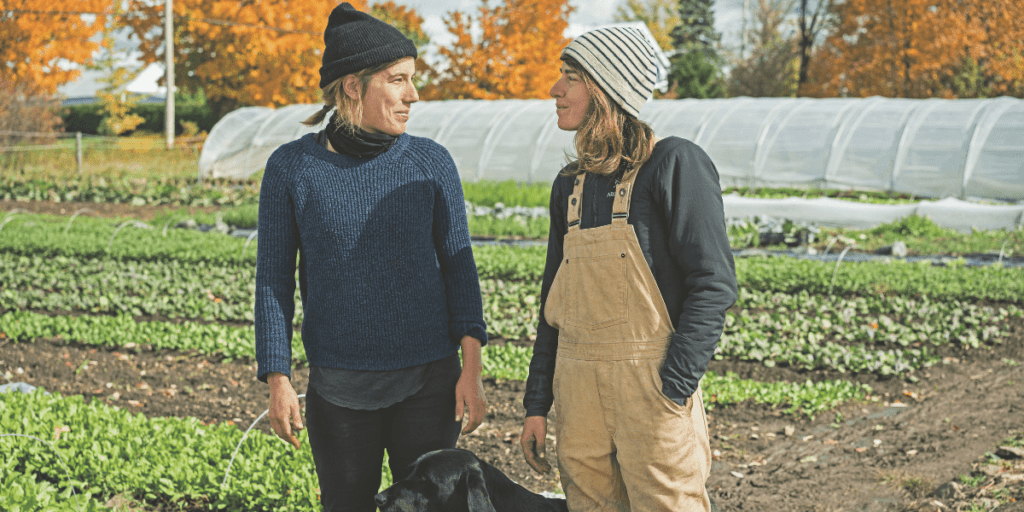
4. Anticipate daily tasks and monitor weather forecasts
Market gardening involves a complex array of tasks and issues, so day-to-day operations must be well organized. Time management is a perpetual concern. This is why you need to schedule tasks. Ideally, you should start the week by listing the work to be done, and the best time to tackle each task. We then recommend sharing this schedule with your team, so that everyone understands the scope of work to be done throughout the week.
Of course, in all of your planning, you’ll have to consider the weather. Some daily operations like weeding, transplanting, and greenhouse tasks are weather dependent. You should plan ahead and schedule this work based on the weather forecast. If you’re expecting a dark and rainy day at the end of the week, some tasks will need to be delayed or addressed sooner.
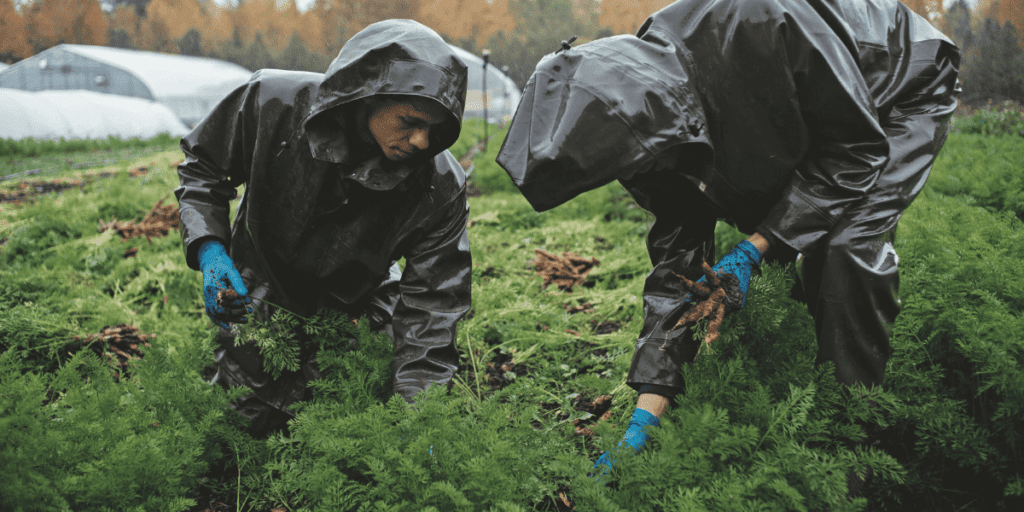
5. Keep calm and cultivate
Sometimes, things will go wrong. And when this happens, try not to panic. Even highly experienced market gardeners can face unexpected challenges. The most important thing is to pause, stop, and think before continuing. If you lose your cool every time you encounter a problem, you’ll never want to get out of bed and your struggles may end up affecting your team.
One day, you might spot fusarium wilt, a fungal disease, in your eggplant crop, while you’re already trying to manage a precarious weed situation and a spider mite infestation in another greenhouse… It’s hard. But things will work out. You will learn, react, and keep going. Remember to believe in your ability to make the right decision and stay calm. Good choices are rarely made in a state of panic.




